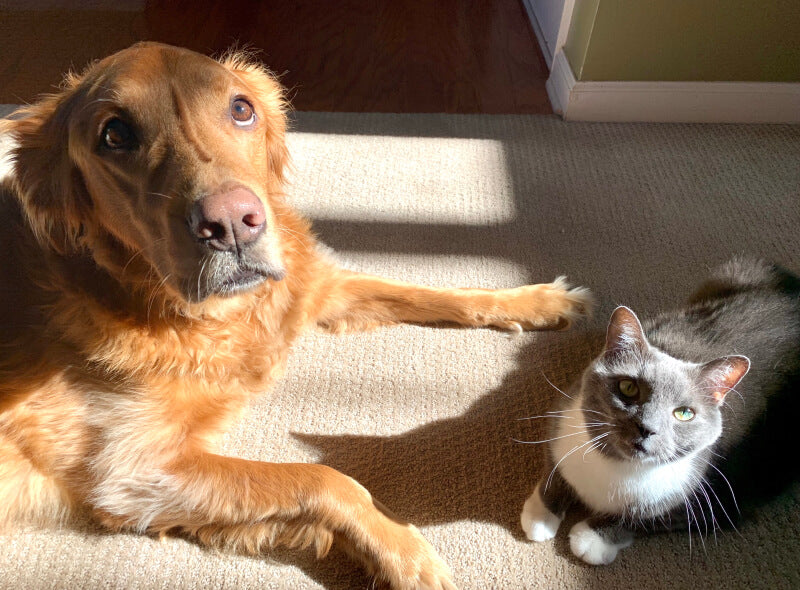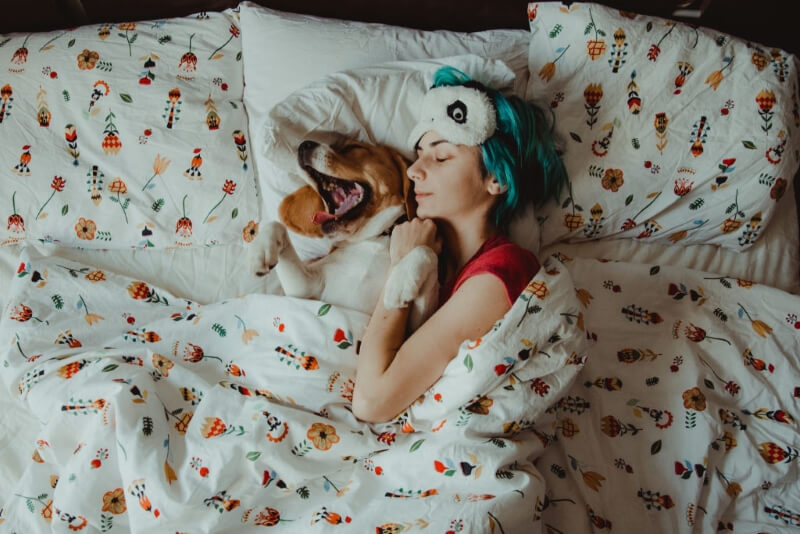Are you looking forward to National Love Your Pet Day? If so, then why not share some love with your pet? This day was created to celebrate pets and their owners.
National Love Your Pet Day was established in 2014 by the American Veterinary Medical Association (AVMA). This day aims to promote awareness of animal welfare issues and encourage pet owners to provide loving care for their animals.
It’s important to remember that our pets are part of the family. They deserve to be treated well and loved. On National Love Your Pet Day, take time out to show your pet some love. You can do it by:
- Taking them on a walk
- Reading to them
- Making sure they have plenty of fresh water and food
Make sure your pets’ needs have been met before taking them outside. Remember to keep an eye on them when outdoors. Also, if you’re playing games or watching TV, make sure that your pets aren’t able to escape.
If you have questions about how to plan activities for your pet during National Love Your Pet Day 2017, check out these tips and ideas.
Pets That Help With Depression
Depression affects millions of people each year. Pets can help with depression as well. Often, pets can help people who struggle with depression get through tough times. Many people envision going camping or hiking when they think of stress relief. However, there are other ways to relieve stress.
One way that many people use to alleviate stress is by spending time with their pets. Studies have shown that spending time with pets can reduce cortisol levels, which helps those affected by depression feel more relaxed. Spending time with your dog or cat reduces blood pressure and heart rate. These benefits may explain why many people find comfort in pets.
How to Keep Our Animals Healthy During the Cold Season
The cold season has arrived! It’s time to bundle up our dogs and cats again. While most pets don’t need extra protection from the elements, others may require additional support. For example, your furry friends might not like being left outside in freezing temperatures. In addition, it’s possible that they could catch a cold or even become very sick.

So, what should you do to ensure that your pet stays healthy during the winter months? Here are seven things to consider:
1. Make Sure Your Pet Has Plenty of Warm Shelters
Make sure that you’ve thought about where your pet will spend the night indoors or outdoors. Indoor heaters work great during the cold season. But don’t forget to consider whether your home offers sufficient shelter from the wind and snow. Winter winds can whip around and blow away blankets. A sheltered area may be necessary for your pets.
2. Offer Protection From Wind And Snow
Many outdoor pets enjoy the crisp fall weather and play in piles of leaves or dig holes in the ground. Unfortunately, this activity may expose your pet to dangerous situations. For instance, a strong gust of wind can carry away your pet. If you live near a lake or pond, your pet may try to swim across it in the middle of a storm. This can lead to hypothermia. So make sure your pet has adequate protection from the bitter cold.
3. Provide them with fresh water
Your pet requires plenty of hydration throughout the cold season. Most dogs prefer warm water. But regardless of their preference, make sure that they always have access to clean drinking water. Be careful to avoid letting your pet drink from dirty water sources such as ponds or lakes.
4. Ensure Their Diet Contains Enough Fatty Acids
Fatty acids protect against inflammation, which can result in an upset stomach. They’re also essential for proper growth, development, and immune system function. To supply your pet with fatty acids, look for foods containing omega-three fatty acids. Omega-3s come primarily from fish oil. You can also add them to your pet’s diet if you choose. Just keep in mind that omega-3s aren’t required in all types of food and that some dogs may have difficulty digesting certain fats.
5. Consider Supplementation
Some animals benefit from vitamin supplementation too. Both cats and puppies receive B vitamins from mom during pregnancy. But once they reach adulthood, they need to rely on their energy stores. That means they must obtain these nutrients from other sources. For example, some dogs may need added folate (also known as folic acid) to prevent anemia. Some cats are at risk of hair loss due to low iron levels. So, supplementing these nutrients may help prevent problems. Always consult with your veterinarian before adding supplements to your animal’s diet.
6. Watch Out For Signs Of Illness
As long as your pet isn’t suffering from a life-threatening illness, there’s no reason to rush to a vet clinic. However, if your dog or cat exhibits any signs of illness, contact your local veterinary hospital immediately. Common symptoms include diarrhea, vomiting, lethargy, lack of appetite, coughing, sneezing, fever, and discharge from the eyes or nose.
7. Keep Them Safe During Cold Weather
Even if you live in a climate without extreme temperatures, accidents still occur. Make sure your pet is wearing a collar with identification tags. Also, watch out for traffic. If you see someone coming down the street who may hit your pet or otherwise harm it, step between the cars quickly. And remember that even though your pet wears a sweater, it may not survive severe exposure to freezing temperatures.

8. Protect Yourself too!
It’s important to provide your pet with adequate shelter and warmth. Don’t let them go outside unsupervised. Keep doors, and windows shut tight. Letting your pet roam outdoors exposes them to dangers like heat stroke or being run over by another vehicle. Even if you don’t think you’ll be gone for extended periods, make sure that you leave home when necessary. Carry a cell phone so that you can call emergency services if needed. And if you do find yourself going somewhere unexpected, take along your pet first. Once you arrive at your destination, take off their leash and walk your pet around.
9. Take Care of Yourself.
Keeping fit helps ensure that you and your pet stay healthy. Exercise frequently to ensure that your body stays warm. Eat nutritious foods that contain lots of protein and complex carbohydrates. Avoid sugar products because they may contribute to obesity. Get a good night’s sleep every evening. Also, make time to relax. Being stressed often leads to health problems.
10. Be a Good Role Model
If you want your dog to learn how to behave properly and society to accept his behavior, you should train your pet according to the guidelines described above. In addition to teaching your dog basic manners, you can teach him how to respond appropriately in various situations.
11. Offer TLC
Be sensitive to what your pet needs. If they appear restless or depressed, talk about your feelings. Encourage your pet to play during free time. Provide plenty of opportunities for exercise and activity. If your pet seems uncomfortable, consider visiting your local animal hospital. A veterinarian can examine your pet and provide advice as well as treatment.
12. Playing With Toys
A toy provides entertainment for both you and your pet. Playing with toys also teaches your pet how to interact with people. You can give your pet a special treat to reward them for a job well done.
13. Show Appreciation For Their Work
Give your pet more than just food treats. Food alone won’t motivate them to work. Instead, present your pet with a game that will keep them busy while you’re away.
14. Leave Your Pets Alone When They Need to Rest
While it’s tempting to spend all of your time playing with your pet, you should allow them to rest whenever possible. Dogs need eight hours of uninterrupted sleep each night. Cats require 12 hours. However, if you’re planning to travel, plan so that you can leave your pet with a friend or relative.
15. Pay Attention To Nutrition
Make sure that your pet gets proper nutrition. Choose high-quality meats such as chicken, turkey, and lamb instead of pork. Include vegetables and fruits in your diet. Add some eggs or salmon to your pet’s daily intake. Feed your pet whole grains instead of bread. Bread has too much fat. You might want to supplement your pet’s diet by adding supplements to increase energy levels.
16. Have Fun Together
Spend quality time together. Enjoy walks, games, hikes, or other activities that are fun for you and your pet. This is especially true for puppies and kittens. It’s important to have fun together to help create positive memories.

17. Teach Your Dog How to Behave Properly.
You can start this process as soon as you bring your puppy home from the breeder. Puppies usually become shy and nervous after their first exposure to people. However, as they get older, they begin to understand social cues such as “down” and “sit.” Start by showing them these commands. Then gradually add other words and phrases until your pet understands what you mean.
18. Socialize Your Pet
Socializing is an excellent way to reduce fear and anxiety in your pet. By taking them to parks, places with children or dogs, and public transportation, you can introduce your pet to new things. Make sure to use caution when exposing your pet to unfamiliar environments.
19. Take Breaks From Time To Time
Your pet may be able to handle certain stressful events without getting upset or anxious. But stress affects everyone differently. Try to avoid overworking yourself. Taking breaks enables you to relax and recharge before continuing with another task.
20. Be a Good Role Model
Don’t expect your pet to read your mind. They react to your actions. When you approach a stranger, your pet will probably greet the person. If you don’t like the stranger’s greeting, your pet could interpret your reaction as aggression. So try not to act in ways your pet doesn’t understand.




Add comment